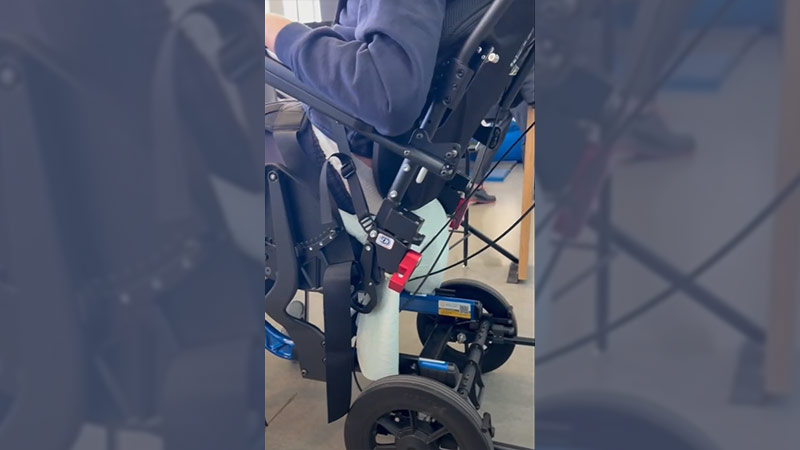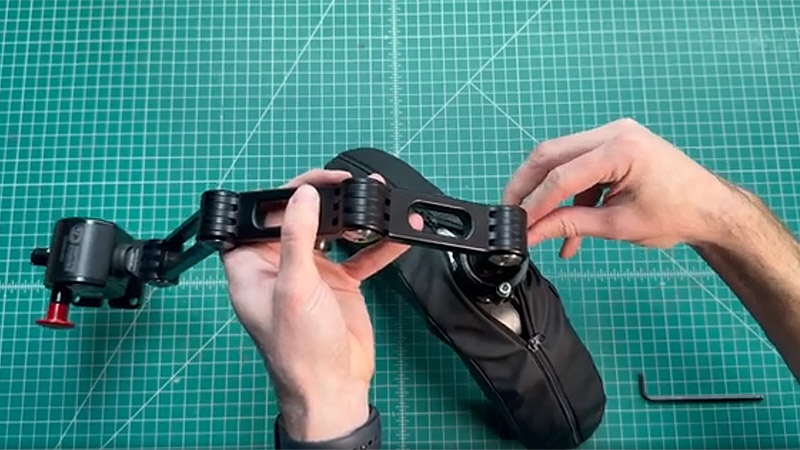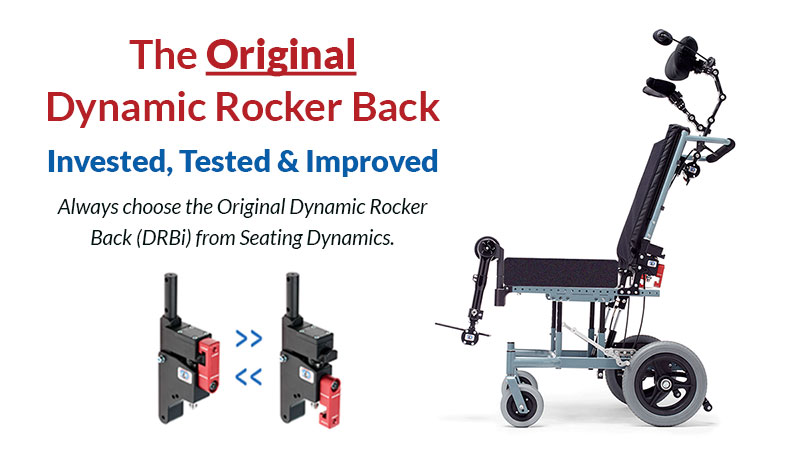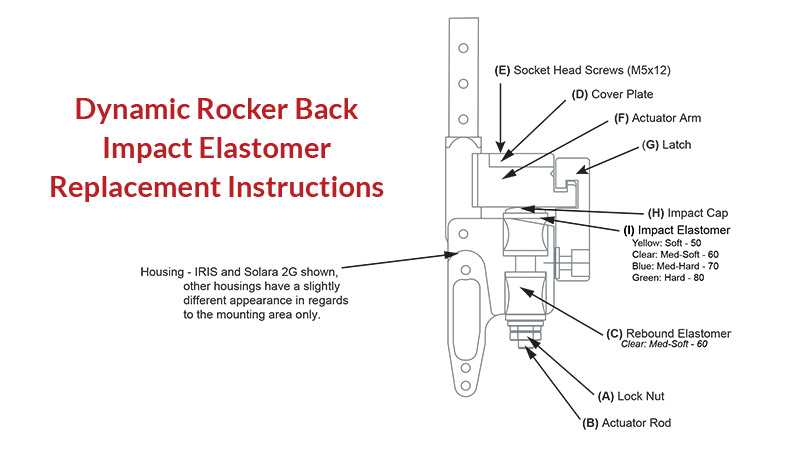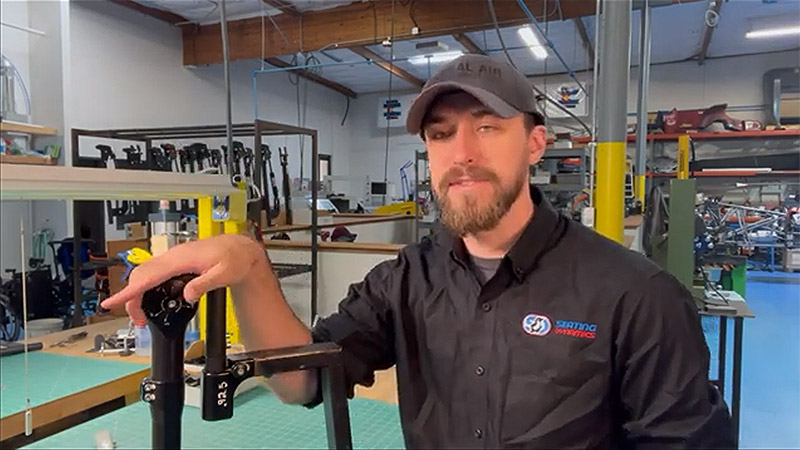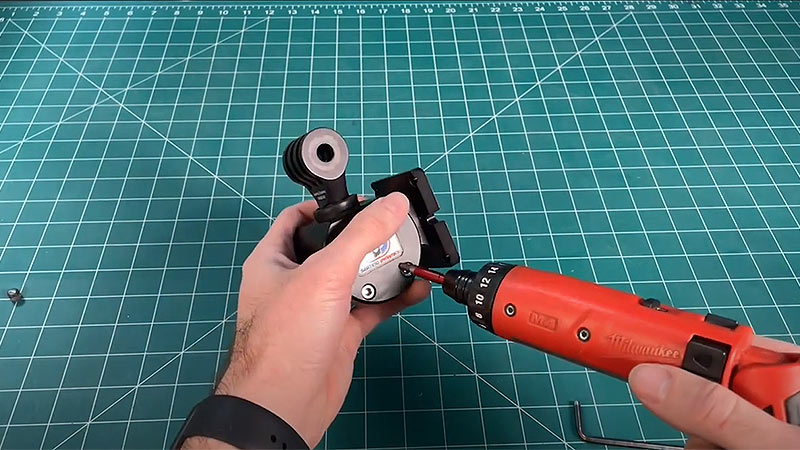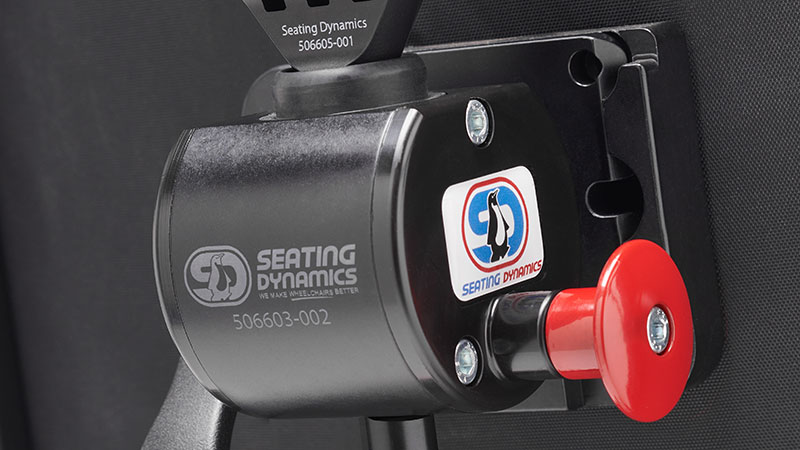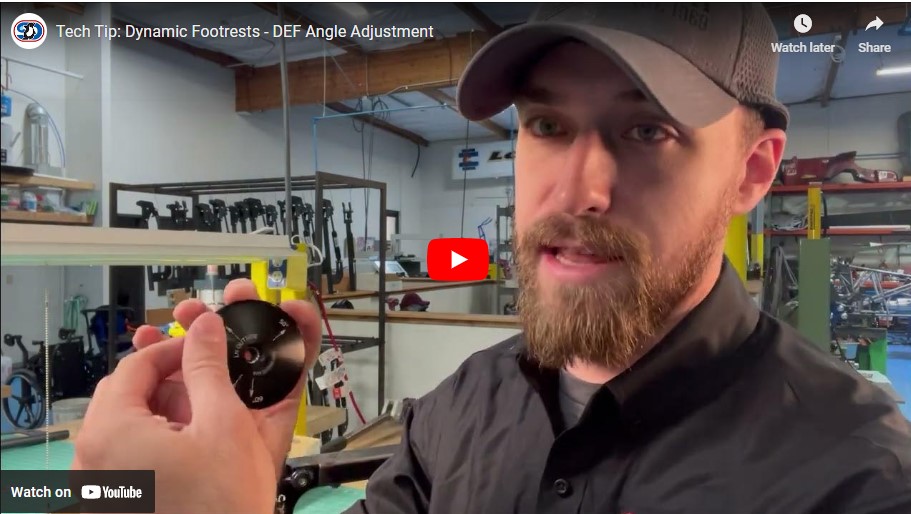The Dynamic Rocker Back interface and Sufficient Resistance
In this video, this client rocks with such force that the Dynamic Rocker Back elastomer compresses completely and the metal above and below touch. We need more resistance!
Tech Tip: Seating Dynamics Pad Adapter Install
In this quick tip, JJ illustrates how to use the swing away function on Dynamic and Static Footrests. This feature allows you “swing away” and even remove, if necessary, the footrests.
Ensure Your Dynamic Back is the Original, Genuine Seating Dynamics Product
Another manufacturer offers a nearly identical version of an old model of the original Dynamic Rocker Back (DRBi) from Seating Dynamics. Make sure you know what your product is.
Dynamic Rocker Back Impact Elastomer Replacement Instructions
These step by step instructions can be used to change the resistance of or replace a worn DRBi elastomer.
Tech Tip: Using the Footrest Swing Away Function
In this quick tip, JJ illustrates how to use the swing away function on Dynamic and Static Footrests. This feature allows you “swing away” and even remove, if necessary, the footrests.
Tech Tip: Add Lock Out to Existing Dynamic Head Support
In this video: JJ demonstrates how to add the lock out feature to an existing single-axis Dynamic Head Support.
Lock Out Feature | Dynamic Head Support for Wheelchairs
The Dynamic Head Support for wheelchairs can now be locked-out to limit head movement when desired, such as during transportation. Learn more about this helpful feature.
Dynamic Head Support Hardware – Lockout Demo
In this video, JJ demonstrates the lockout function of the Dynamic Headrest allowing users to pause headrest movement when undesirable.
Tech Tip: Dynamic Footrest – Knee Angle Adjustment on Telescoping-only Footrest
In this video, JJ shows you how to adjust the knee angle on the telescoping-only Dynamic Footrests.
Tech Tip: Dynamic Footrests – Knee Angle Adjustment
In our new series of Tech Tips for Dynamic Seating products, JJ shows you how to set the angle at the knee on your Dynamic Footrest for Wheelchairs.

